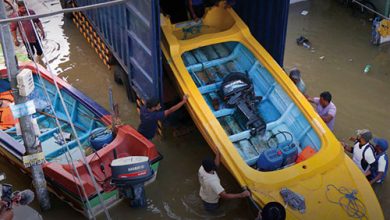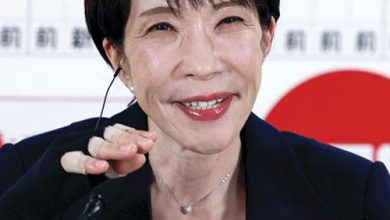
 Shortly after being elected by parliament, President Ranil Wickremesinghe pledged to resolve the ‘ethnic conflict’ and take the burden off the shoulders of future generations. As part of his solution, he referred to the need to fully implement the 13th Amendment including the devolution of police and land powers.
Shortly after being elected by parliament, President Ranil Wickremesinghe pledged to resolve the ‘ethnic conflict’ and take the burden off the shoulders of future generations. As part of his solution, he referred to the need to fully implement the 13th Amendment including the devolution of police and land powers.
SOLVE THE INTERNAL CONFLICT
Dr. Jehan Perera calls on the president to win the peace here in Sri Lanka
Successive governments have been unwilling to do so in spite of the constitutional clauses that necessitate such action.
Following his successful visit to India, Wickremesinghe is once again pledging to deal with the vexed problem of finding a political solution to the ethnic conflict.
The strengthening of ties with India is in Sri Lanka’s national interest. And a sustainable solution requires rationality and intellectual clarity to see through the mists of history and mistrust before being taken before the larger population.
Wickremesinghe will face formidable challenges when addressing issues of the past, and dispelling the mindset of mistrust and suspicion, whether in international relations or with regard to the country’s protracted internal conflict.
Thereafter, he will need to arrive at a political solution that addresses the fears and interests of all communities.
The president announced that the issue of the devolution of police powers under the 13th Amendment needs to be discussed further. He will consult with all the political parties in the government and opposition before arriving at a decision.
Though Sri Lankan communities are generally mistrustful of each other, there comes a time when ancient mistrusts and memories of war must give way to rationality and cooperation in the mutual interest of all.
The Tamil National Alliance (TNA), which continues to represent mainstream Tamil opinion, has reacted sceptically to the president’s latest expressions of goodwill with regard to finding a political solution. Its scepticism is mirrored in the larger Tamil population regarding the willingness of this or any government to offer them a political system in which they will be treated as equal citizens.
There is a strong and living belief among the Tamil people that they are treated as second-class citizens by the Sri Lankan state. They see this in the communications that they continue to receive in Sinhala only and whenever they’re bypassed for promotion as government officers.
This is an outcome of the experiences they have had to undergo in post-independence Sri Lanka.
As a prerequisite to talks, the government needs to embark on confidence building measures that will convince the Tamil people that the state actually trusts and cares about them. An important action would be to sharply reduce if not totally eliminate the Sri Lankan military’s involvement in civilian life in the north and east.
There continue to be checkpoints in Sri Lanka’s north and east that are manned by Sinhalese soldiers who stop and search vehicles, and compel the occupants to unload all their luggage and cargo in the process.
More than 14 years after the war ended, the north and east of the country shouldn’t be treated differently to the rest if there’s to be true national unity of hearts and minds rather than only geography.
Another major issue in the north and east has to do with the takeover of land on the grounds that there are archaeological monuments from the ancient past when Buddhism was prevalent in those areas too.
This has induced both state officials and the Buddhist clergy to seek to set up Buddhist places of worship at the sites of those ancient archaeological finds and in addition, claim a considerable share of the land on the grounds that in the ancient past, it was held by that particular temple or monument.
Wickremesinghe has rightly taken the position that ancient archaeological sites, whether of Buddhist origin or not, are a heritage of the entire country and not a particular ethnicity.
In regard to the full implementation of the 13th Amendment and especially the devolution of police powers, the president has stated he will be seeking the support of other parties in parliament.
Wickremesinghe opined several months ago that the devolution of police and land powers is already a part of the constitution; and if they are not to be implemented legally, parliament needs to abolish them with a two-thirds majority.
The devolution of both land and police powers are guaranteed under the constitution, and need to be implemented. And Wickremesinghe needs to give his leadership to this reform.
This content is available for subscribers only.





